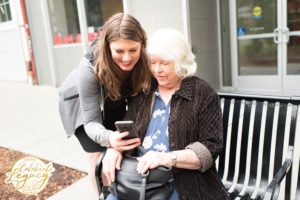 10 Tricks to Handle Change When You are a Senior
10 Tricks to Handle Change When You are a Senior
Change is tough no matter the age. However, the older we become the more challenging. Remember, most seniors have been experiencing so much loss. Their vision has changed, their hearing has changed, their energy has changed and the friends around them have begun to lessen. So asking a senior who has been forced to handle so much change to make a change is likely one of the most difficult things you will ask them to do.
It seems easy to you. They have been having more and more difficulty with basic care situations and then you come along suggesting they get care or move. You might as well have asked them to become a unicorn. They just aren’t seeing the rationale. Which is why asking someone who has had so much change to do just one more change may make them dig in their heels.
Here are some tips that will make handling change that may be inevitable a little more bare-able.
- Start by exploring the options.
- Do not let yourself get overwhelmed.
- Look at what you liked about the change first.
- Analyze what made the change uncomfortable to you.
- Ask people that love you and that you trust why they think this change is good for you.
- Change is good for you. Embrace that concept and see how this change will actually benefit you.
- Let others you trust lead the way in your change.
- Discover what grounds you and be sure to have doses of that.
- Let those that love you set the stage for the change so that you will be most comfortable.
- Keep a journal about the change.
No matter your age these resolutions would benefit.
Lisa Doyle is a Registered Nurse who has worked in geriatrics most of her career. She works as a care manager and placement navigator in Washington state. Helping families navigate the world of long-term care. She provides support and family mediation when a family is unsure what to do next. She founded CayCare in 2005. Lisa has worked with traumatic brain injuries, spinal cord injuries and dementia. She has worked closely with clients who have Multiple Sclerosis, Strokes and Parkinson’s as well. To learn more about what Lisa and CayCare does go to www.caycare.com
There are also specialty courses available online for planning ahead before seeing an elder law attorney. She also teaches facilities how to best work with seniors and their families. To purchase one of her courses, go to www.caycare.com/ondemand
